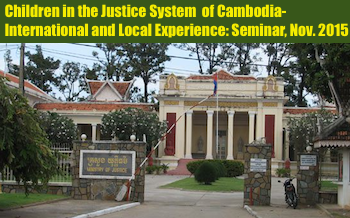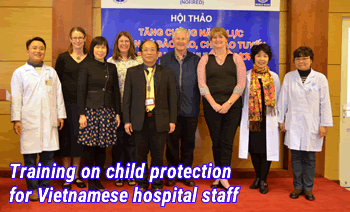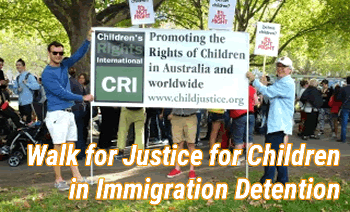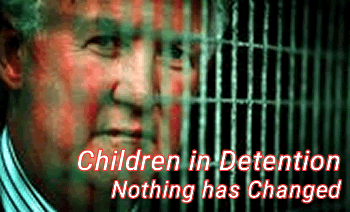Sarah Sedghi reported this story on Thursday, February 12, 2015 12:20:00, The World Today, ABC Radio
ELEANOR HALL: Child rights advocates are supporting the Human Rights Commission's recommendation to release all children from immigration detention, including the 119 children in Nauru.
They say the report is not the first to draw attention to the harm detention inflicts on children but that its findings are clear and it's time to act.
Sarah Sedghi reports.
SARAH SEDGHI: It's been more than a decade since the Human Rights Commission last investigated the detention of asylum seeker children.
The latest investigation which began last year found that detention causes children significant mental and physical harm.
It documented cases of assaults and self-harm.
ALASTAIR NICHOLSON: This is, I think, one of the most disgraceful episodes in Australian history, the treatment of children in detention.
And this is an objective and clear account of the evidence that really should make us all ashamed of this behaviour.
How any Australian government could justify this on any basis is beyond me.
SARAH SEDGHI: Former Family Court Chief Justice Alastair Nicholson chairs the child advocacy group Children's Rights International.
He has welcomed the release of the report and supports the recommendation for a royal commission.
ALASTAIR NICHOLSON: A royal commission is really the only way to get to the bottom of all this.
We have these, what I believe are false claims that the purpose of this exercise was to save lives at sea.
I don't believe that's correct, I don't think the government has ever been honest about that and I think a royal commission would open up what really has gone on.
And that would apply to both parties, and of course, that probably makes the royal commission unlikely because neither of them are prepared to face up to what they have done.
SARAH SEDGHI: The establishment of a royal commission is one of the report's 16 recommendations.
It also calls for the release of all children who are held in detention in Australia and on Nauru and that someone independent replaces the immigration minister as the guardian for unaccompanied children.
Paul Ronalds is the chief executive of Save the Children in Australia.
PAUL RONALDS: Well, we absolutely support the release of children from detention.
The current government has promised to release all children from detention in Australia. That needs to be finalised.
The current government's also promised to implement open processing on Nauru which is a very positive step forward.
SARAH SEDGHI: Paul Ronalds says the Government has reduced the numbers of children in immigration detention, but Australia's policy does not do enough to support asylum seekers and refugees.
PAUL RONALDS: So the numbers have been significantly reduced.
I guess what I would say is that I see, around the world, millions of asylum seekers and refugees and the solution that Australia has put in place does nothing to make a global contribution to actually settling the enormous numbers of people that are fleeing persecution and civil war and others and that just means it's not sustainable.
It means the problem is simply just made to pop up elsewhere.
SARAH SEDGHI: Many children have been released from detention in Australia and on Christmas Island, but more than 200 remain in custody.
Alastair Nicholson says the Government needs to make clear what will happen to the 119 children on Nauru.
ALASTAIR NICHOLSON: What the Government has not said is what is going to happen to these children on Nauru. They've got this, what I regard as an offensive proposal to send them to Cambodia.
Now the obvious and sensible solution would be to accept them in Australia and grant them appropriate visas so that they can eventually become part of the Australian community.
SARAH SEDGHI: Dr Nick Kowalenko from the Royal Australian and New Zealand College of Psychiatrists has spoken to a number of families and their children in detention, and says it's a distressing place for families to be in for long periods of time.
NICK KOWALENKO: They also experience the hostility of the environment, the hostility of being under constant surveillance, hostility of the impact of detention on adults.
There is a lot of self-harm in a detention environment, children often have witnessed that.
SARAH SEDGHI: The Human Rights Commission report also says no child should be sent offshore for processing unless their human rights will be upheld.
ELEANOR HALL: Sarah Sedghi reporting.













